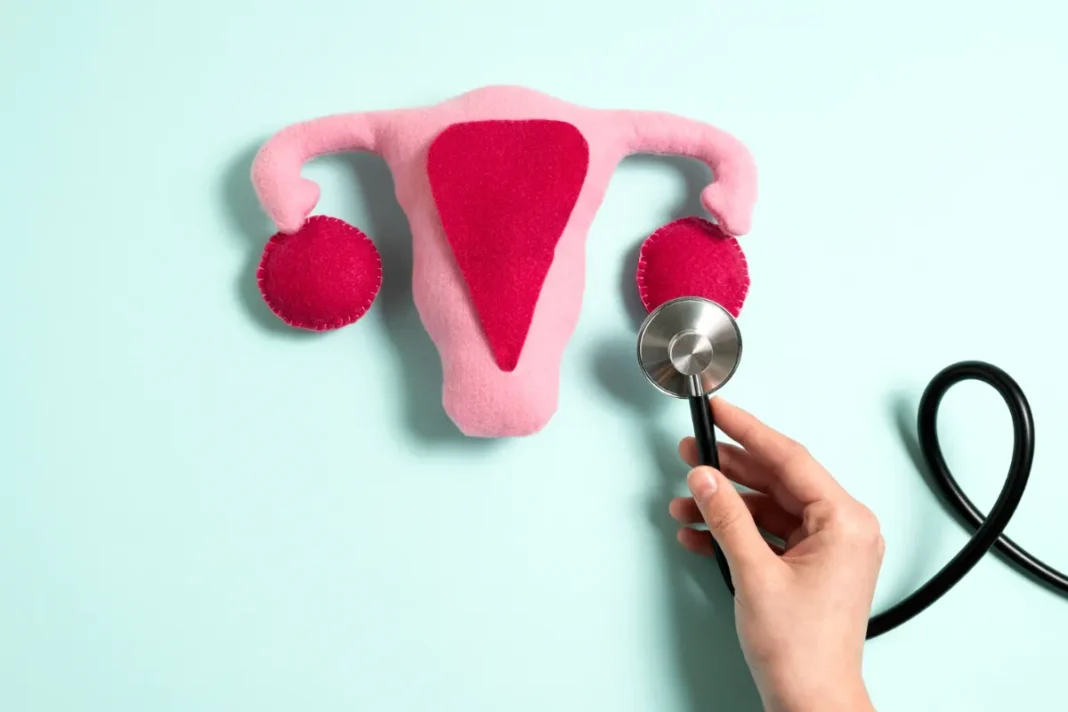Ovarian cancer is a type of cancer that begins in the female reproductive system. Women over 50 are the most affected, though it can happen to younger people as well. Early detection and treatment are essential for better results, which emphasizes the need for symptom awareness and preventative measures.
What is Ovarian Cancer?
When cells in the ovaries grow abnormally and form tumours, it is called ovarian cancer. These growths could either be benign or cancerous. If malignant tumours are not quickly detected and treated, they may spread to other bodily parts.
Symptoms of Ovarian Cancer
Early detection of ovarian cancer symptoms can greatly increase the chances of a favourable outcome. Conversely, ovarian cancer frequently fails to reveal any early warning signs. Several signs and symptoms could emerge as the cancer progresses.
- The abdomen has persistent swelling or bloating.
- Pressure or pain in the pelvic area.
- Feeling full or having trouble eating.
- Changes in bowel movements, such as bloating, can affect digestion.
- Frequent Urination.
- Tiredness.
- Weight gain or loss.
- Discomfort during sexual activity.
It’s crucial to remember that other less serious diseases can also be the source of these symptoms. To ensure a proper evaluation, it is essential to visit a doctor if these symptoms continue for longer than a few weeks.
Risk Factors for Ovarian Cancer
The following are some of the risk factors for ovarian cancer.
- The older you get, the more likely you are to get ovarian cancer.
- Women with close relatives who have had breast or ovarian cancer may be more at risk.
- The risk of ovarian cancer is greatly increased by mutations in the BRCA1 and BRCA2 genes.
- Women with a history of uterus, colorectal, or breast cancer may be at an increased risk.
- The development of tissue resembling the lining of the uterus may contribute to an elevated risk.
Preventing Ovarian Cancer
Although there is no surefire way to avoid ovarian cancer, there are things you may do to lower your risk.
- Maintaining a healthy weight may help lower the risk of ovarian cancer, as obesity has been linked to an increased risk.
- Preventive surgery is an option for women at high risk for ovarian cancer, especially those with BRCA gene mutations.
- Routine screenings, such as pelvic exams, transvaginal ultrasounds, and CA-125 blood tests, may be beneficial for high-risk women in order to detect ovarian cancer early on.
Treatment and Remedies
Surgery is typically used to remove the tumour from the ovary, and then chemotherapy or radiation therapy is used to eradicate any cancer cells that may still be present. A particular medication or hormone therapy may occasionally be beneficial as well.
- In addition to improving your quality of life, a nutritious diet may also help you receive better treatment for cancer.
- You can feel healthier, have more energy, and feel better with regular exercise.
- You can feel more at ease and less worried by practicing yoga, meditation, and deep breathing.
Disclaimer: This material, including advice, provides general information only. It is in no way a substitute for a qualified medical opinion. Take the methods, and claims mentioned in this article as suggestions only; DNP India does not confirm or refute them. Consult a doctor before implementing any such suggestions/ treatment/medicine/diet.


